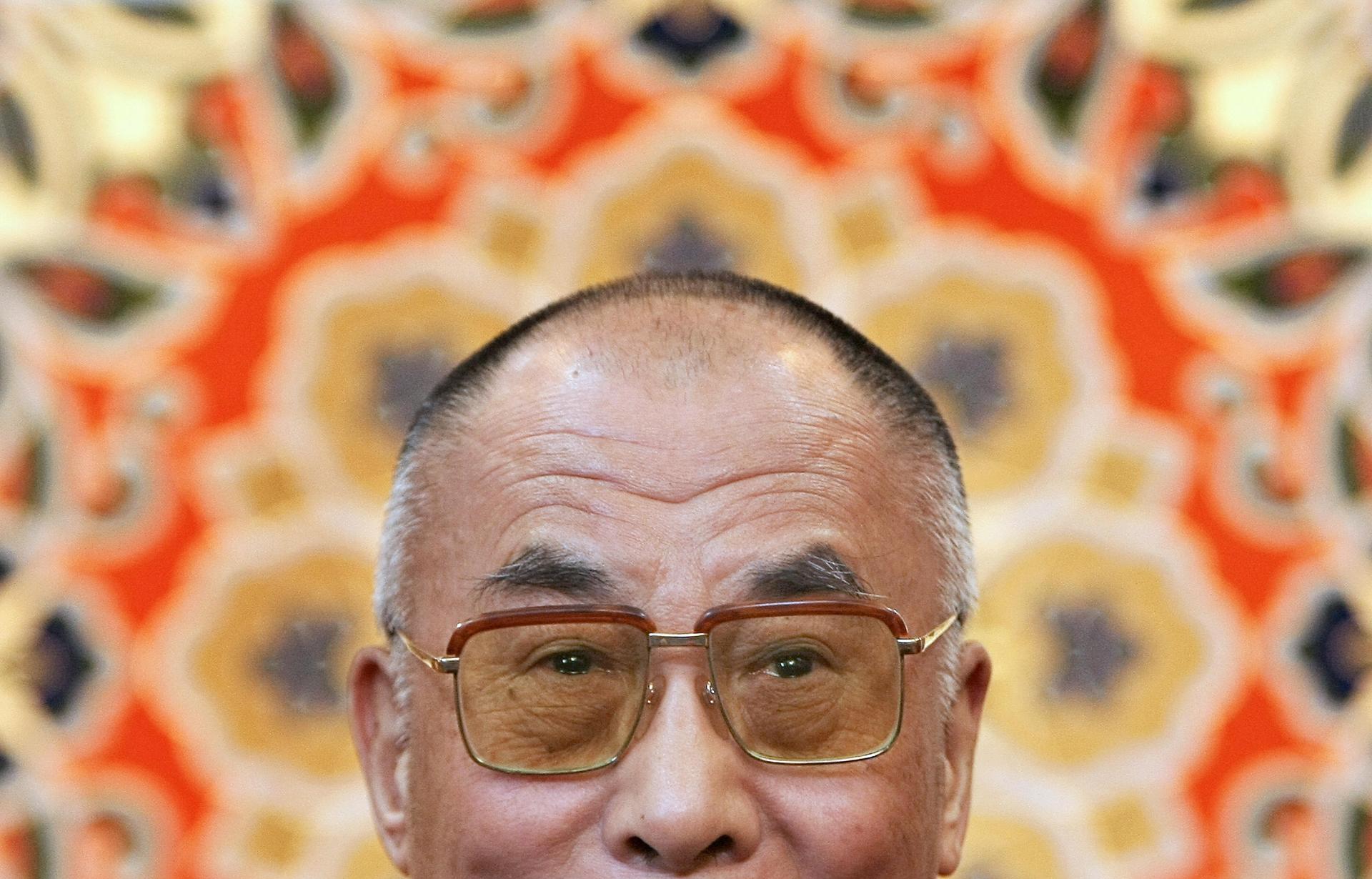South Africa debates permitting visit of Dalai Lama
Tibetan spiritual leader the Dalai Lama addresses journalists in Dharamsala on November 23, 2008.
JOHANNESBURG, South Africa — While the Dalai Lama waits to learn if he will be granted a visa to visit South Africa next week, a delegation of top government ministers has gone to Beijing to drum up trade.
The four-day trip, led by South African deputy president Kgalema Motlanthe, adds fuel to speculation that South Africa will kowtow to China and deny the Tibetan spiritual leader a visa for a second time, a move that would outrage many in South Africa but please the Chinese authorities.
The visa row is an example of China’s economic and political clout in Africa, with South Africa willing to bend to the will of its largest trading partner no matter the implication for freedom of speech and democracy back home.
And as China’s power grows in Africa, the Dalai Lama — derided as a “splittist” and a “wolf in monk’s clothing” by China — is losing recognition in the developing world.
More from GlobalPost: South Africa stalls on Dalai Lama visit
The Dalai Lama wants to visit South Africa to attend the 80th birthday party of his good friend and fellow Nobel Peace Laureate, the Archbishop Emeritus Desmond Tutu, on Oct. 7. He is also to deliver a lecture titled "Peace and compassion as catalyst for change," as part of the birthday celebrations.
“He has submitted every document required. The visa fees have been deposited,” said Sonam Tenzing, the Dalai Lama's representative for Africa who is based in Pretoria.
“The South African hosts are hopeful. They’re still hopeful and waiting,” Tenzing said.
But the Dalai Lama has been in this quandary before. Despite having visited South Africa three times in the years after apartheid ended, South Africa banned him from attending a Nobel laureates' peace conference in 2009, claiming his visit would detract attention from the 2010 soccer World Cup.
Tutu, who received a Nobel prize for his work in helping to end apartheid, called the action by the South African government — which after the end of white rule strove to become a beacon of human rights and democracy — "disgraceful" and “a total betrayal of our struggle history."
"We are shamelessly succumbing to Chinese pressure,” said Tutu.
In the last two years, relations between Pretoria and Beijing have grown ever closer, casting doubt on the Dalai Lama’s chances of being allowed to visit South Africa this time around.
Trade between South Africa and China increased from more than $8 billion in 2006 to a record $25.6 billion in 2010, according to Chinese figures, and last year Beijing invited South Africa to join the exclusive BRIC grouping of key emerging economies, despite South Africa’s sluggish growth rate.
There have also been frequent high-level visits between the two countries, and political training at China's Communist Party school for top officials in the African National Congress party. President Jacob Zuma, while visiting Beijing last year, indirectly praised the country’s authoritarian political system, musing that China’s “political discipline” could be “a recipe for economic success.”
Clayson Monyela, spokesman for South Africa's foreign affairs department, this week denied that there was pressure to block the Dalai Lama's visit.
But China typically lashes out at countries that allow the Dalai Lama entry and grant him meetings.
More from GlobalPost: Dalai Lama to decide on reincarnation at 90
"China's position of opposing the Dalai Lama visiting any country with ties to China is clear and consistent," foreign ministry spokesman Hong Lei told a daily news conference in Beijing, according to the Associated Press. Hong reportedly would not say if China had discussed the pending trip with South Africa.
On Tuesday, the South Africa trade delegation, which includes ministers of trade and industry, public enterprises, energy, and mineral resources, arrived in China. Deputy president Motlanthe is scheduled to meet with Chinese vice-president Xi Jinping, who is tipped to become China's next leader and appears to be following the party’s hard-line stance towards Tibet. In a July speech, Xi vowed to "smash" Tibetan separatist forces that he said were linked to the Dalai Lama.
China says Tibet was always part of its territory, but many Tibetans argue the region was effectively autonomous for centuries, and accuse Beijing of suppressing their religion and culture. The Dalai Lama has lived in exile in India since 1959 after fleeing a failed uprising against Chinese rule in Tibet.
While the Dalai Lama now insists he seeks only more autonomy for his homeland, not independence, Beijing remains sensitive about Tibet amid continuing tensions.
Two monks in a Tibetan region of southwestern China set themselves alight on Monday to protest Chinese policies, including restrictions on religious freedom.
